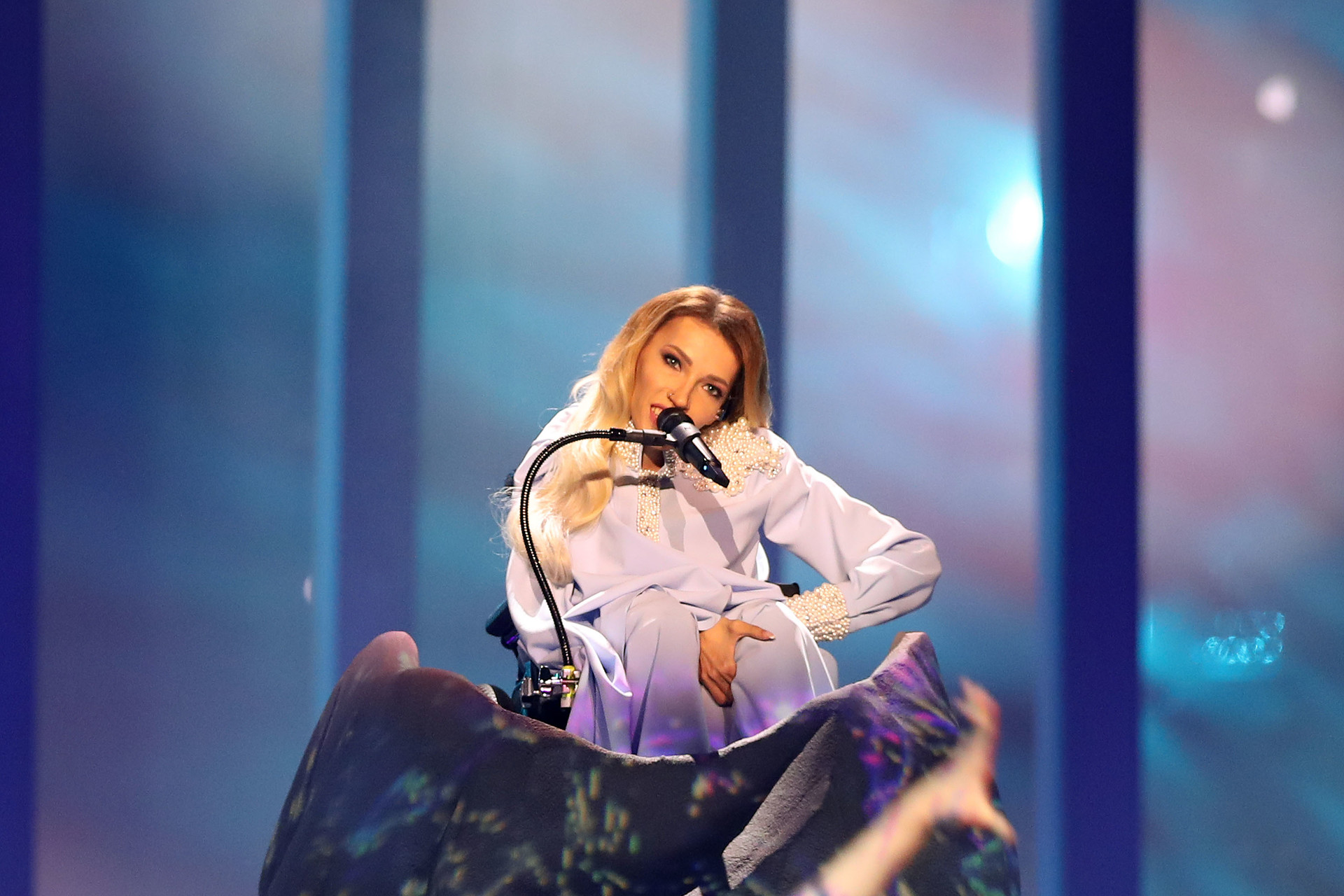The leaders of the national selection for Eurovision in Ukraine refused to represent the country at the international stage of the contest. The last refusal to participate voiced bronze medalists of the competition - the group Kazka.
In his Instagram account, the team wrote that it was ready to defend the honor of the country at a competition next year, but the musicians "do not need a victory at any cost."
“We want and would be honored to represent Ukraine at Eurovision. We have invested in this desire a lot of effort, energy, time. We followed this to the National Selection. But we do not need a victory at any cost. Our mission is to unite people with our music, and not to sow discord. Therefore, we have a clear answer to the NOTU proposal: we will not go to Eurovision in 2019, ”the musicians wrote.
Kazka noted that the main goal of the group’s creativity remains “to bring Ukrainian culture to the world”.
On the eve of the participation in Eurovision, the group Freedom Jazz, which took the second place in the national selection, refused. After that, the NOTA did not rule out that the country could refuse to participate in the competition. According to board member Alexandra Koltsova, the competition situation has split the public.
“The competition has acquired such a politicization, the society takes painfully the opportunity to speak out once a year in the international arena. It may be advisable to consider the abolition of Ukraine’s participation this year, ”she said.
Ukrainian artist Andrei Danilko, widely known for his role as Verka Serdyuchka, noted that the selection for the contest once again becomes too politicized.
“The competition has gone beyond the musical! People who honestly wanted to participate in the competition program and represent their country at the European competition, after the scandal, the hunt disappears. So much negativity, I myself am confused! Politics again interferes with this contest, I feel hurt, ”Danilko said.
"Bonded" contract with NOT
Difficulties with the choice of the applicant for participation in the music contest from Ukraine began after the winning singer Maruv in the national selection refused to represent the country at Eurovision in Tel Aviv.
According to her, the terms of the contract offered to her by the National Public TV and Radio Company (NOTU) were “enslaving”. Apart from the fact that the broadcaster, in accordance with the contract, will not provide the singer with financial and organizational support, Maruv was forbidden to communicate with journalists without the consent of the NOTA. Such conditions were considered by the performer as a desire to force her not to participate in the competition.
Even during the competitive selection the jury was embarrassed that the actress was touring in Russia. The singer agreed to abandon the Russian tour.
Later, Deputy Prime Minister of Ukraine Viktor Kirilenko appealed to the Verkhovna Rada with a request to consider a bill regarding the touring activities of Ukrainian performers in Russia.
Ukrainians themselves reacted violently to the situation with Maruv. Internet users, including representatives of the Ukrainian authorities, have published a lot of posts in defense of the singer. Moreover, the activists created a petition in which it is required to provide the artist access to the competition. At the time of publication of the article, the petition was signed by 16 thousand people.
Ukraine at Eurovision
Ukraine has participated in an international song contest since 2003. At that time, the country was represented by singer Alexander Ponomarev with the song “Hasta la Vista, Baby” by Israeli rock singer Zwick Pick.
In total, Ukraine participated in the contest for 15 years - in 2015, Kiev for the first time refused to participate in Eurovision, explaining this to the unstable financial and political situation in the country.
Ukraine has twice become the winner of the music contest. In 2004, in Istanbul, singer Ruslana with the song “Wild Dances” scored a winning 280 points.
12 years later, Jamal with the composition “1944” performed in English and Crimean Tatar became the laureate of the competition. The song, based on real events, long before the finals of the musical contest caused a strong public reaction. In a single of Jamala, a number of critics, media representatives, as well as viewers saw political overtones related to the deportation of Crimean Tatars from the peninsula to Stalin.
However, the situation with the Jamala track is not the first and not the only conflict that occurred on the eve of the competition and is connected with Ukraine. A year later, Kiev’s decision to ban entry to the territory of the country by Russian participant Yulia Samoilova turned into a scandal. The ban in Ukraine was justified by the fact that Samoilova had previously performed on the territory of the Crimea. Then the European Broadcasting Union fined the National Public Television and Radio Company of Ukraine (NOTU). However, in 2017, Russia was never able to take part in the competition.
- Julia Samoilova
- globallookpress.com
- © Pedro Fiuza / ZUMAPRESS.com
A few years earlier, in 2007, the Russian audience heard in the song of the travesty-artist Andrei Danilko (speaking at Eurovision as Verka Serdyuchka) the phrase “Russia, Goodbye” at the end of the single Lasha, Tumbai. Later, the artist became persona non grata in Russia.
Kiev also used a competitive platform for other political statements. Immediately after the events of 2004 in Ukraine, called the “Orange Revolution,” Ukraine sent the Greenjola team to the competition with the song “Raz us bagato - we couldn’t get enough.” The single was considered the unofficial hymn of the 2004 revolution. At the request of the organizers of the competition, fragments of the song with political overtones were changed.

